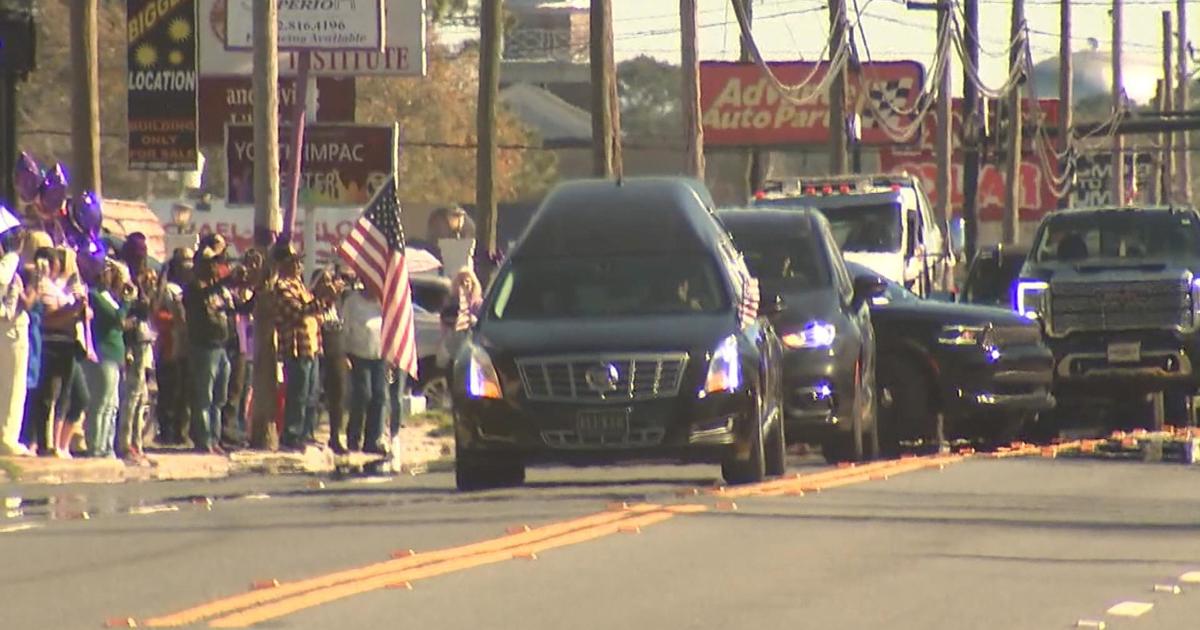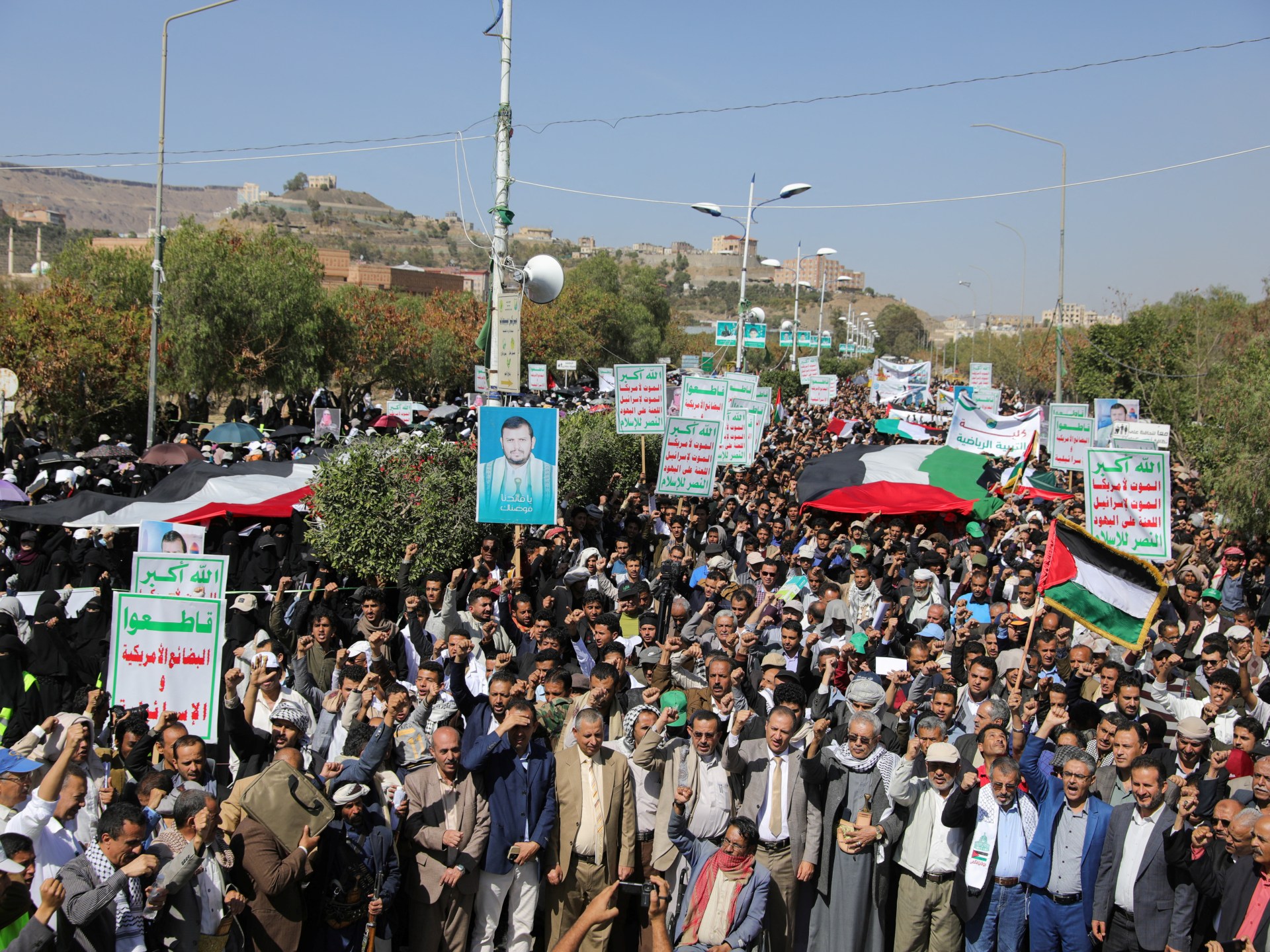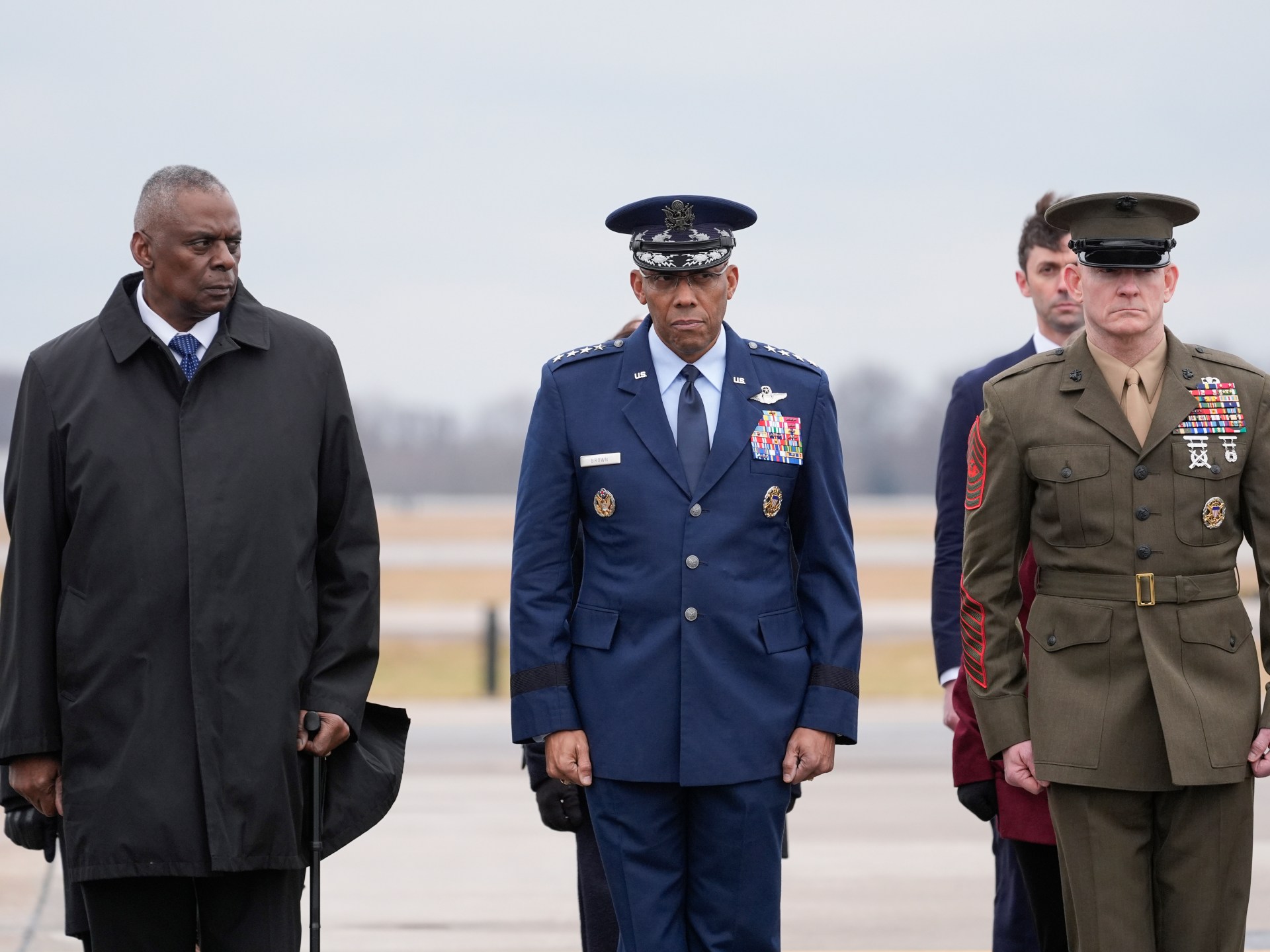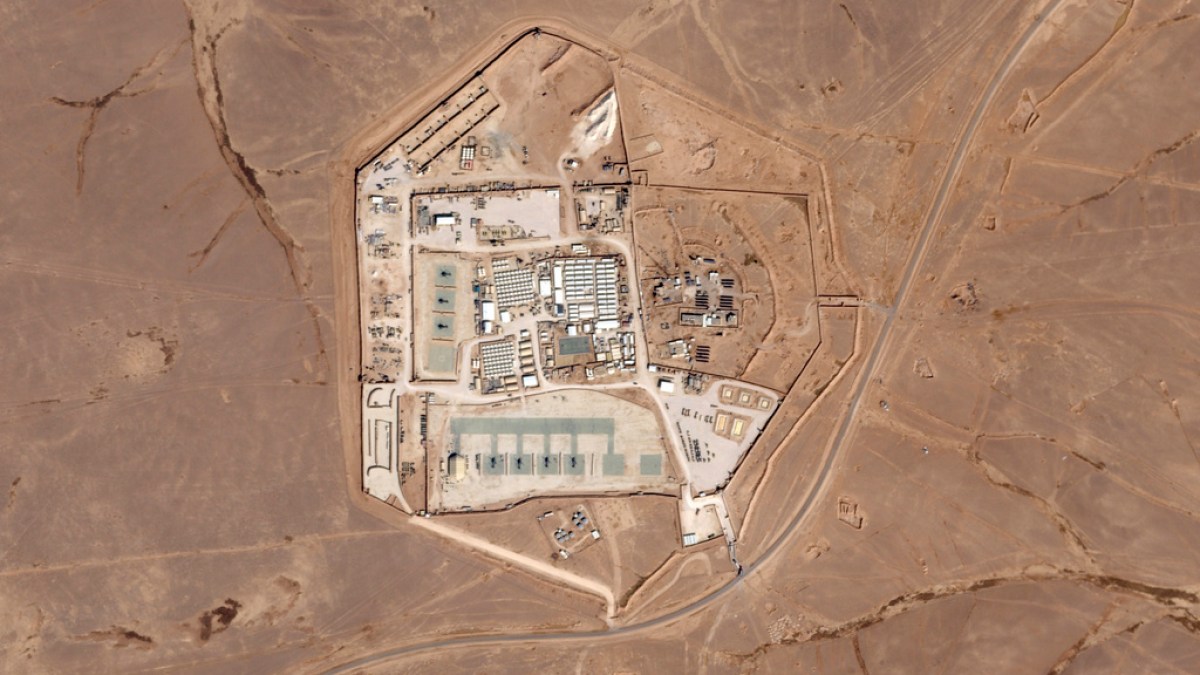World
Donors in Brussels pledge €9.6bn in aid to Syria & its refugees abroad
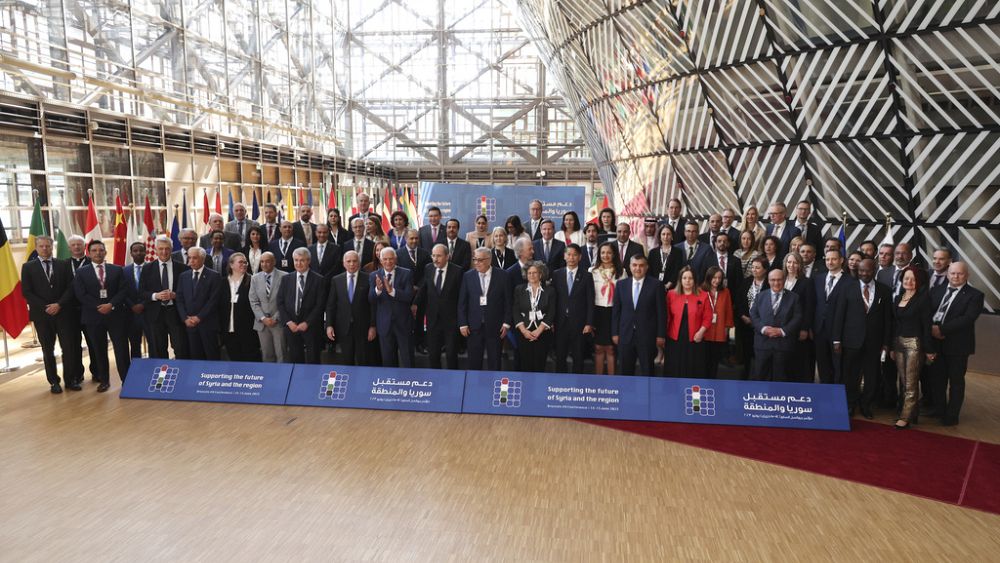
The amount falls short of the €10.1bn asked for by the United Nations in a humanitarian appeal.
Donors in Brussels have pledged €9.6 billion ($10.3 billion) in grants and loans to support Syrian people both in and around the country.
The money committed at the Brussels VII Conference: “Supporting the future of Syria and the region, was held in the Belgian capital on Thursday and is supposed to help the 15 million people inside war-torn Syria, as well as the neighbouring countries hosting Syrian refugees, which themselves are in a dire economic situation.
The amount is close to what was requested by the UN, but some €500 million is missing.
UN Assistant Secretary-General, Ulrika Modéer, says that the situation in Syria and surrounding countries affects the entire globe.
“Ten per cent of coverage in regard to these needs is simply not enough. This is a crisis that actually affects, of course, the people concerned but also all the neighbouring countries and the rest of the world,” Modéer said in an interview with Euronews.
“We have to support the resilience of communities, basic services, the local economy in a way that makes it possible to people to uphold their agency.”
The money donated by the international community amounts to €4.6 billion for 2023 and €1 billion for 2024 and beyond. €3.8 billion in grants were pledged by the EU, with €2.1 billion from the European Commission and €1.7 billion pledged by the EU Member States.
The rest is made up of loans from international financial institutions and donors who pledged €4 billion.
The earthquake that hit Turkey and Syria, last February, has worsened the crisis and local NGOs on the frontline say they cannot cope.
Euronews spoke to one that is operating in the rebel-held north-western area, with 1,200 volunteers trying to help young people and women.
They are also running two maternities and two hospitals for primary health care.
“We need flexible funding that we can mobilise and utilise immediately when we have disasters. We have to keep our capacity for the emergency response,” Hisham Dirani, the CEO of the NGO Violet Organisation, told Euronews.
“The security situation, like unexpected military operations, is something making life harder and harder and we have to take a lot of measures.”
Of the 6.8 million Syrians that left the country, around five million are not far from home.
Turkey received more than three million refugees, and the rest are mainly spread over Lebanon, Jordan, Iraq and Egypt.
But the leaders of these countries are increasingly talking about sending them back home.
One argument is that there is no prospect of a viable political alternative to the regime, particularly since the Arab League readmitted President Assad earlier in May, after being expelled when the civil war began in 2011.
If Syria’s neighbouring countries move from words to deeds and start repatriating the refugees they have been hosting for over a decade, there could be changes in migration flows. Instead of returning home, refugees may seek another safe haven and Europe is a likely destination.

World
German social democrats promise not to join forces with the right
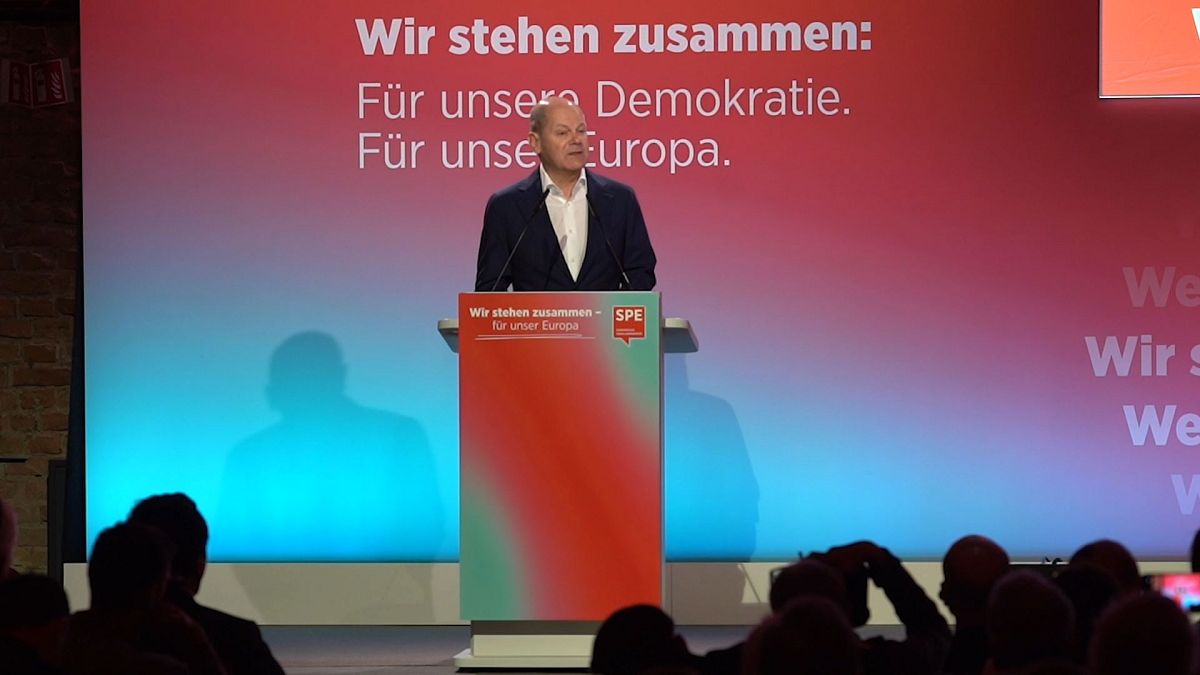
German social democrats spoke out against far right violence amid declining support after an attack on Friday night that hospitalised Saxony top candidate for the EU elections Matthias Ecke.
Germany’s Social Democratic Party (SPD) and the Social Democratic Party of Europe held a democracy congress in Berlin as a show of force against the far right that is gaining traction across Europe.
SPD has been polling at a historical low following an economically rocky few years, but the party is now ramping up efforts to win back support after violent far-right attacks continue to increase.
German Chancellor Olaf Scholz urged voters not to vote for far-right parties.
“Democracy is threatened by such things, and therefore, accepting them with a shrug of the shoulders is never an option. We must stand together against it,” he said.
Scholz also warned against further right wing attacks, and added, “that this is directed against local politicians and mayors in small towns and cities. Democracy is threatened by such things,” pointing to an attack on a 28-year-old campaigner for the Greens, that appears to be by the same group.
Ecke is currently in hospital awaiting surgery for his injuries.
Speeches, lead by European social democratic leader Stefan Loefven and the centre-left candidate to head the European Commission, Nicolas Schmit, saw politicians vow not to collaborate with far-right parties if coalitions needed to be built.
The far-right Alternative for Germany (AfD) party condemned the attack on Ecke.
World
Senate races are roiled by campus protests over the war in Gaza as campaign rhetoric sharpens
HARRISBURG, Pa. (AP) — The student protest movement disrupting university campuses, classes and graduation ceremonies over the war in Gaza is also roiling Senate contests across the nation as Democrats tread cautiously over an internal divide and Republicans play up their rivals’ disagreements.
The political impact of the protests on the White House campaign has drawn considerable attention, with opposition to President Joe Biden’s handling of the Israel-Hamas war reverberating from Columbia to UCLA. The fast-evolving landscape of the demonstrations is shaping pivotal Senate races, too.
Tent encampments have popped up at universities in many states where Democrats this election year are defending seats essential to maintaining the party’s razor-thin Senate majority. At some schools, police crackdowns and arrests have followed.
The protests have sharpened the campaign rhetoric in Pennsylvania, Nevada, Ohio and Michigan, among other places. Republican candidates in California and Florida have stepped up their criticism of the Democratic president for the U.S. response to the war or for chaotic scenes on American campuses.
Some Republicans have shown up at encampments, including one at George Washington University, not far from the White House. Sen. Rick Scott, R-Fla., who is facing reelection, said on social media that he went there to show solidarity with Jewish students. “We need to do all we can to protect them,” he said.
Republican candidate David McCormick, during a visit to the University of Pennsylvania, said protesters at the Ivy League school did not know the “difference between right and wrong, good and evil,” and were creating a hostile atmosphere for Jewish students.
McCormick has decried what he frames as a lack of leadership and moral clarity on the part of his Democratic opponent, Sen. Bob Casey, as well as by Biden and administrators at the school buffeted by accusations of harboring antisemitism.
“What’s happening on campuses is clearly a test of leadership and moral courage, both for the college presidents and for our leaders and for Sen. Casey and President Biden,” McCormick said in an interview.
Israel and its supporters say the protests are antisemitic, a charge that Israel’s critics say is sometimes used to silence legitimate opposition. Although some protesters have been caught on camera making antisemitic remarks or violent threats, protest organizers, some of whom are Jewish, say it is a peaceful movement aimed at trying to save the lives of Palestinians civilians.
Many Democrats, from Biden on down, avoided saying much about the situation until recently as universities began to crack down and comparisons were made to anti-war protests of the 1960s.
Even then, Democrats balanced their criticism of antisemitism and rule-breakers with the need to protect the right to free expression and peaceful protest. Some have tried to avoid taking sides in protests that have pitted pro-Israeli versus pro-Palestinian Democrats and divided important parts of the party’s base, including Jewish, Arab American and younger voters.
Republicans, meanwhile, have railed at what they characterized as equivocating or silence by Democrats. Republicans professed solidarity with Jews against antisemitism while condemning the protests as lawless.
Mike Rogers, a Republican seeking an open Senate seat in Michigan, said student protesters at Columbia were “Hamas sympathizers.” In California, GOP Senate candidate Steve Garvey called them “terrorists” practicing “terrorism disguised as free speech.”
In five states, the National Republican Senatorial Committee, the Senate Republicans’ campaign arm, is using the protests in digital ads about student loan forgiveness, saying Democrats want to pay off the loans of students “radicalized by the far left” who are “threatening Jews,” “attacking police” and “acting like terrorists.”
McCormick and others say universities that, in their view, tolerate antisemitism should lose federal subsidies and that visas should be revoked for any foreign student inciting violence or expressing pro-Hamas sentiments at the encampments.
Casey, long a staunch supporter of Israel, has criticized acts of antisemitism on campuses and pointed to legislation he sponsored as a way to make sure the Education Department takes action.
“Students of course have the right to peacefully protest, but when it crosses the line either into violence or discrimination, then we have an obligation to step in and stop that conduct,” Casey said Thursday as he urged colleagues to pass his bill.
Democratic Sen. Jacky Rosen of Nevada, who is Jewish and facing reelection, said she was “horrified” by displays of antisemitism on campuses and, like Casey, called for the department to hold schools accountable.
In California, U.S. Rep Adam Schiff, the Democratic nominee for an open Senate seat, took aim at the Columbia demonstration and said “antisemitic and hateful rhetoric is being loudly and proudly displayed.” Accused by Garvey of being “incredibly silent” on the protests, Schiff, who is Jewish, voted for a House bill similar to Casey’s and released a statement that condemned violence and the “explicit, repeated targeting and intimidation of Jewish students.”
Republicans elsewhere contended statements by Democrats were equivocating and inadequate.
Republicans called out Sen. Sherrod Brown, D-Ohio, after he told an Axios reporter last week that he was “not going to talk about the politics of that. People always have the right to speak out and should.”
His Republican opponent, Bernie Moreno, charged that Brown had “wholeheartedly endorsed these vile and violent antisemitic demonstrations.”
Later, at a news conference, Brown gave more expansive comments. “Students want to make their voices heard, they need to do it in a way that’s nonviolent, they need to do it in a way that doesn’t spew hatred, and laws need to be enforced,” he said.
In Michigan, which has a relatively significant Muslim population, Biden’s handling of the war is expected to factor heavily into the presidential and Senate races.
Rogers, a favorite for the GOP nomination, thanked New York City police for confronting protesters and “standing up to protect Jewish students at Columbia from the visceral hatred we’ve witnessed from Hamas sympathizers on their campus.”
Republicans argued that U.S. Rep. Elissa Slotkin, the front-runner for the Democratic nominationfor Senate, had not spoken out strongly against protests at Columbia, her alma mater, and that she took five days after they began to say anything at all.
Slotkin, who is Jewish, said in an April 22 statement — the most recent wave of demonstrations began at Columbia on April 17 — that “the use of intimidation, antisemitic signs or slogans, or harassment, is unacceptable.”
It was, she suggested, a complicated topic.
“I would rather be thoughtful and take more time than have a knee-jerk answer for any issue,” Slotkin said in an interview. “But especially this one.”
__
Associated Press reporters Adam Beam in Sacramento, California; Joey Cappalletti in Lansing, Michigan; Mike Catalini in Trenton, New Jersey; Tassanee Vejpongsa in Philadelphia; and Stephany Matat in West Palm Beach, Florida, contributed to this report.
World
13 killed as heavy rains unleash landslide in Haiti

At least 13 people died in northern Haiti following two days of heavy rains, officials said.
The majority of the deaths were caused by a landslide in the southeastern region of the coastal city of Cap-Haitien, according to a Thursday statement by Haiti’s Civil Protection Agency.
GANGS IN HAITI LAUNCH FRESH ATTACKS, DAYS AFTER A NEW PRIME MINISTER IS ANNOUNCED
More than 2,200 homes also were flooded, and there were significant losses in livestock swept away by the Haut-Cap river, authorities said.
Officials say at least 13 people died in northern Haiti following two days of heavy rains. (Photo by THONY BELIZAIRE/AFP via Getty Images)
Crews were clearing roads across northern Haiti, with additional rain expected in upcoming days.
Heavy rains also were reported in neighboring Puerto Rico, forcing at least a dozen flights scheduled to land in the capital of San Juan to reroute to the Dominican Republic and elsewhere, officials said Friday.
Widespread flooding also was reported in the U.S. territory.
-

 News1 week ago
News1 week agoLarry Webb’s deathbed confession solves 2000 cold case murder of Susan and Natasha Carter, 10, whose remains were found hours after he died
-

 News1 week ago
News1 week agoFirst cargo ship passes through new channel since Baltimore bridge collapse
-

 World1 week ago
World1 week agoHaiti Prime Minister Ariel Henry resigns, transitional council takes power
-

 World1 week ago
World1 week agoSpanish PM Pedro Sanchez suspends public duties to 'reflect'
-

 World1 week ago
World1 week agoUS secretly sent long-range ATACMS weapons to Ukraine
-

 News1 week ago
News1 week agoAmerican Airlines passenger alleges discrimination over use of first-class restroom
-

 Education1 week ago
Education1 week agoVideo: Johnson Condemns Pro-Palestinian Protests at Columbia University
-

 Movie Reviews1 week ago
Movie Reviews1 week agoAbigail Movie Review: When pirouettes turn perilous

